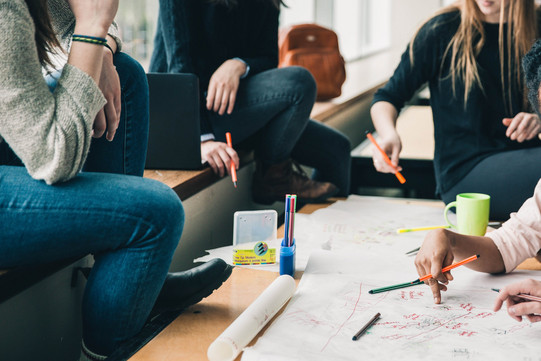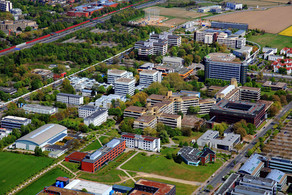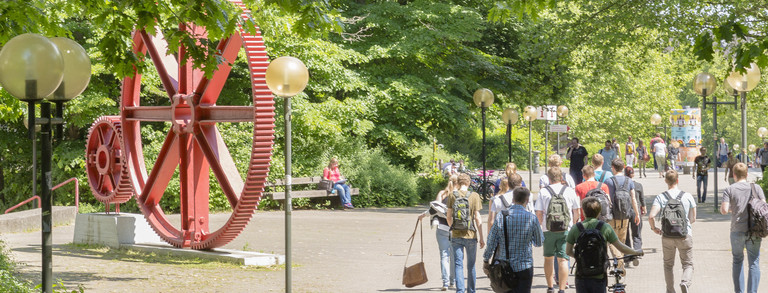Research Applications
The continuous acquisition of third-party funding is of central importance for implementing the objectives of the research strategy, maintaining and further developing the performance as well as ensuring the competitiveness of TU Dortmund University: Research-related third-party funding offers improved resources for research, supports the successful competition for the best minds, supplements the basic resources [...] and promotes the possibilities of cooperation and the visibility of research at TU Dortmund University. In addition, they are highly relevant for the training of especially qualified specialists who, following their project work, take up positions in science, but also in many areas of society and the economy.
Recording sustainable research applications
Not all research proposals or research projects can be categorized as "sustainable" per se. They must first be evaluated in terms of sustainability using content-related indicators. A research information system (FIS) including an application and project database for recording research activities and sustainability indicators will soon be available at TU Dortmund University. This will enable a more precise statement to be made in the near future regarding the exact number of projects researching sustainable topics. In addition to the publication output analyzed in the chapter "Publications", the determined value will then also be able to provide information on how intensively the topic of sustainability in the narrower sense is dealt with at TU Dortmund University and how high the corresponding transfer output to the major social issues of sustainability is.
Sustainable research design
A distinction must be made between research projects that deal with sustainability in terms of content and projects that take sustainability criteria into account in their research design. In its research strategy, TU Dortmund University calls on its researchers "to make research sustainable, use the opportunities offered by digitalization and act in an agile manner" (Research Strategy of TU Dortmund University, p. 2). An indicator for this call has not yet been included in the strategy. With the aim of recording this, a supplementary definition would have to be made in the future. It would be conceivable to draft a TU Dortmund University Guideline based on the DFG's recommendations (in German) for the consideration of sustainability aspects in the research process.

Sustainability as a criterion in funding applications
The topic of sustainability is increasingly coming into focus in all application lines. In June 2023, the DFG anchored the concept of ecological sustainability (in German) in its funding activities and published it as guiding questions (in German). Researchers should be encouraged to reflect even more strongly on their approach, e.g., with regard to equipment procurement, travel activities, computing power, etc.
In its Sustainability Strategy 2023, the Federal Ministry of Education and Research (BMBF) has set itself the goal of aligning education, research and innovation funding even more closely with the key transformations towards sustainability. At the end of 2020, the BMBF had already published a strategy for research for sustainability and aligned its research funding for climate protection and greater sustainability with the United Nations 2030 Agenda. The FONA strategy focuses on the global Sustainable Development Goals (SDGs) and formulates strategic goals and fields of action for research on sustainable topics, which also include aspects of social sustainability.
In addition, there are application lines that can be categorized as sustainable per se because they only support sustainable project applications. One example is the European Regional Development Fund (ERDF), which promotes the development and structural adjustment of regions lagging behind in development or the structural change of declining industrial regions and can therefore be assigned to the social dimension of sustainability.


Research and transfer support services
In view of the importance of acquiring research-related third-party funding and the increasing relevance of sustainability in terms of content and structure, it is essential to facilitate and support application processes by providing supporting structures. When applying for new research projects, researchers are proactively supported by the Research Support Services, which also advises researchers on possible funding programs on sustainability topics. Researchers can use the services of the Center for Entrepreneurship & Transfer (CET) (in German) to ensure the rapid transfer of research results into practice. This ensures that sustainable innovations are applied in a timely manner and that TU Dortmund University is a key driver of innovation for the region and a source of synergies for a strong start-up scene.




